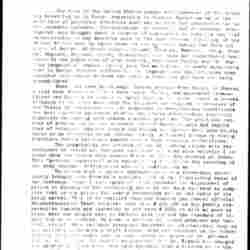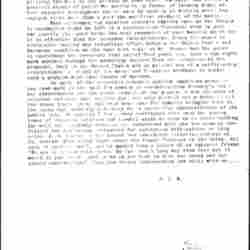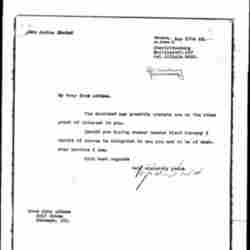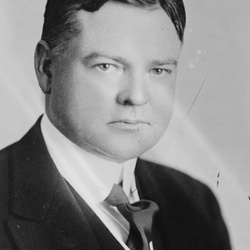(From a letter to a friend.)
. . . One born in the United States cannot well conceive of the trouble besetting us in Europe especially in Central Europe owing to the multitude of political frontiers used not so much for administrative as for economic purposes. Consideration of revenues and of international development have brought about a network of hindrances to industry and [trade] inconceivable to any American used to the vast trading territory of the United States open on equal terms to its citizens immigrated from all parts of Europe. Although Russia, Poland, Germany, Bohemia, Italy, France, England, Holland, Spain, Scandinavia etc. have all contributed their share to the population of your country, the constitution and the English language of course closely join the multitude. It seems surprising that in Europe despite differences in languages and constitutions some smoother intercourse between the various races has not been similarly accomplished.
Genoa has been an attempt, though distant from Genoa, in Geneva, a real step forward has just been taken. [Today] the agreement between Poland and Germany in regard to Upper Silesia [has] been signed in Geneva. Although it [has] been made only for 15 years and only under pressure of the Treaty of Versailles and its sequences it nevertheless constitutes the most complete agreement between two states disregarding political frontiers in dealing with common economic problems. The practical success of keeping intact the economic life of Upper Silesia but beyond that of bringing together German and Polish enterprise will undoubtedly serve as an incentive to an economic unity in Central Europe by having frontiers define political powers rather than economic restrictions.
The opportunity our government had of rubbing elbows with the statesmen of nearly all European countries has been more valuable I believe than the treaty with Russia Wirth and Rathenau secured at Genoa. This "getting acquainted" will considerably facilitate the handling of the many economic difficulties steadily confronting us.
There has been a further aggravation of the tremendous uncertainty brought into Germany's economic life by the fluctuating value of our currency. Since I last spoke of it in December the adjustment of prices in Germany to the purchasing power of the Mark has been so complete that [today] prices for nearly everything are on the basis of the world market. When it is realized that our highest government official Reichspraesident Ebert receives less than ℳ600,000 as his yearly compensation (salary and expenses) or not even $2000 it will at once be clear what our people have to contend with and how the standard of living had to be reduced. No plan at present discussed promises any tangible relief. Even the much discussed American or international loan as now outlined would merely shift burdens from one shoulder to the other: Germany as [illegible] might take to some extent the place of the present [labors?] [of] [illegible]. It appears significant that Mr. Keynes has changed the opinion [illegible] still held even last November that a betterment in the value of Germany's currency might be brought about by some international [page 2] action. He now considers as the best attainable the possibility of stabilizing the Mark at the present or some other low rate. How little a possible change of political sentiment in [favor] of Germany might affect economic development can be seen by looking at Austria which has enjoyed since more than a year the political goodwill of the world.
What statesmen and [so-called] economic experts have so far failed to accomplish might be left to a constructive financial mind in your own country who could bring the vast resources of your banking world into an effective play for European reconstruction. Given the power to coordinate banking and industrial effort between the United States and European countries on the same vast scale as Mr. Hoover had the power to coordinate the emergency food relief four years ago, such a man might work wonders through his authority derived from the resources at his disposal. Only in the United States are at present men of a sufficiently international mind and of the moral and financial backbone to tackle such a problem with some chance of success.
In spite of the miserable economic outlook important progress has been made in the last few months in reconstructing Germany's international [organization] and the moral stamina of our people. A few attempts at railroad and municipal strikes have not only petered out without result for those trying them, but they have gone far towards bringing back to the state the authority necessary for a successful administration of the public life. Personally I have every confidence that even the trying times of economic distress and turmoil which we seem to be again heading for will not seriously endanger the determined will and the growing confidence now dominating everywhere for overcoming difficulties as they arise. J. M. Barrie in his quaint and remarkable rectorial address at St. Andrews University spoke about the theme: "Courage is the thing. All goes if courage goes," and he quoted from a letter of an explorer friend: "We are in a deep rate state. No fuel and a long way from food but it would do your [heart] good to be in our tent to hear our songs and our cheery conversation." Song and cheery conversation are still with us . . .
O. J. M.













Comments